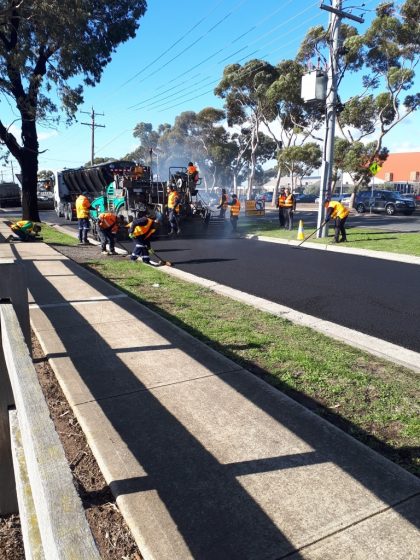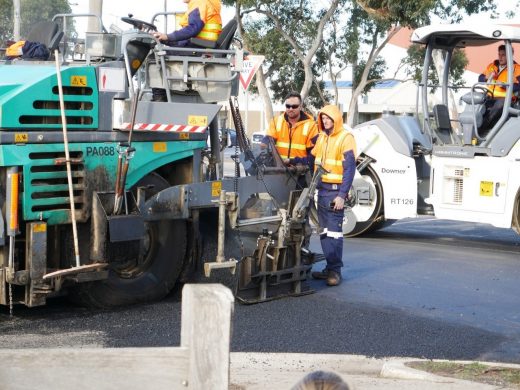 According to the news published by “Plastics News”: The future may be paved with recycled plastics. At least three projects around the world — in Australia, New Zealand and the Netherlands — are putting down pavement made using recycled plastics in place of virgin asphalt.
According to the news published by “Plastics News”: The future may be paved with recycled plastics. At least three projects around the world — in Australia, New Zealand and the Netherlands — are putting down pavement made using recycled plastics in place of virgin asphalt.
In Australia, Downer EDI Ltd. has used soft plastics such as bags along with the toner from used printer cartridges, glass and recycled asphalt in a 1,400-foot section of roadway in a Melbourne suburb.
In New Zealand, Fulton Hogan paved part of Christchurch International Airport’s fire station with an asphalt mix that includes, 3,100 4-liter plastic oil containers.
And the Dutch community of Zwolle, the PlasticRoad project will begin by using recycled plastics for two pilot projects made up of 30-meter long bicycle paths made of hollow prefabricated elements enabling water drainage and laying down of cables and pipes.
The PlasticRoad concept was launched in 2015 by market leader in road construction KWS, a subsidiary of Royal VolkerWessels. The specific locations have not been named yet.
In Australia, the suburban roadway in Craigieburn uses 200,000 plastic bags and other soft plastic packaging; 63,000 glass bottles; toner from more than 4,500 used printer cartridges; and 50 metric tons of recycled asphalt to create 250 metric tons to create what Downer EDI is currently calling “Plastiphalt.”
Dante Cremasco, Downer’s executive general manager for its Melbourne-based road services division, told Plastics News the company has applied for a trademark for Plastiphalt, but may need to vary the name if it exists elsewhere.
Downer scientists have been working on its product for “several years” to get the optimum mix of recyclables, but the National Sword program in China, which cut off many waste plastic imports, accelerated the process because it means more waste plastic is being stockpiled in Australia and recycling costs have increased.
Downer has partnered with two resource recovery and recycling companies, Melbourne-based international entity Close the Loop Pty. Ltd., which provides the recycled toner cartridges; and Melbourne-based REDcycle Pty. Ltd., which collects post-consumer soft plastic, unsuitable for council-operated curbside recycling programs, via collection points located outside Australia’s major supermarket chains’ stores.
Please read more from the “SOURCE”













